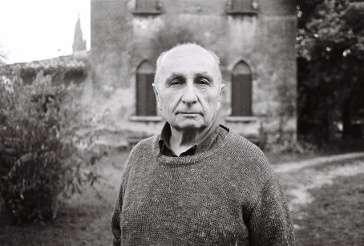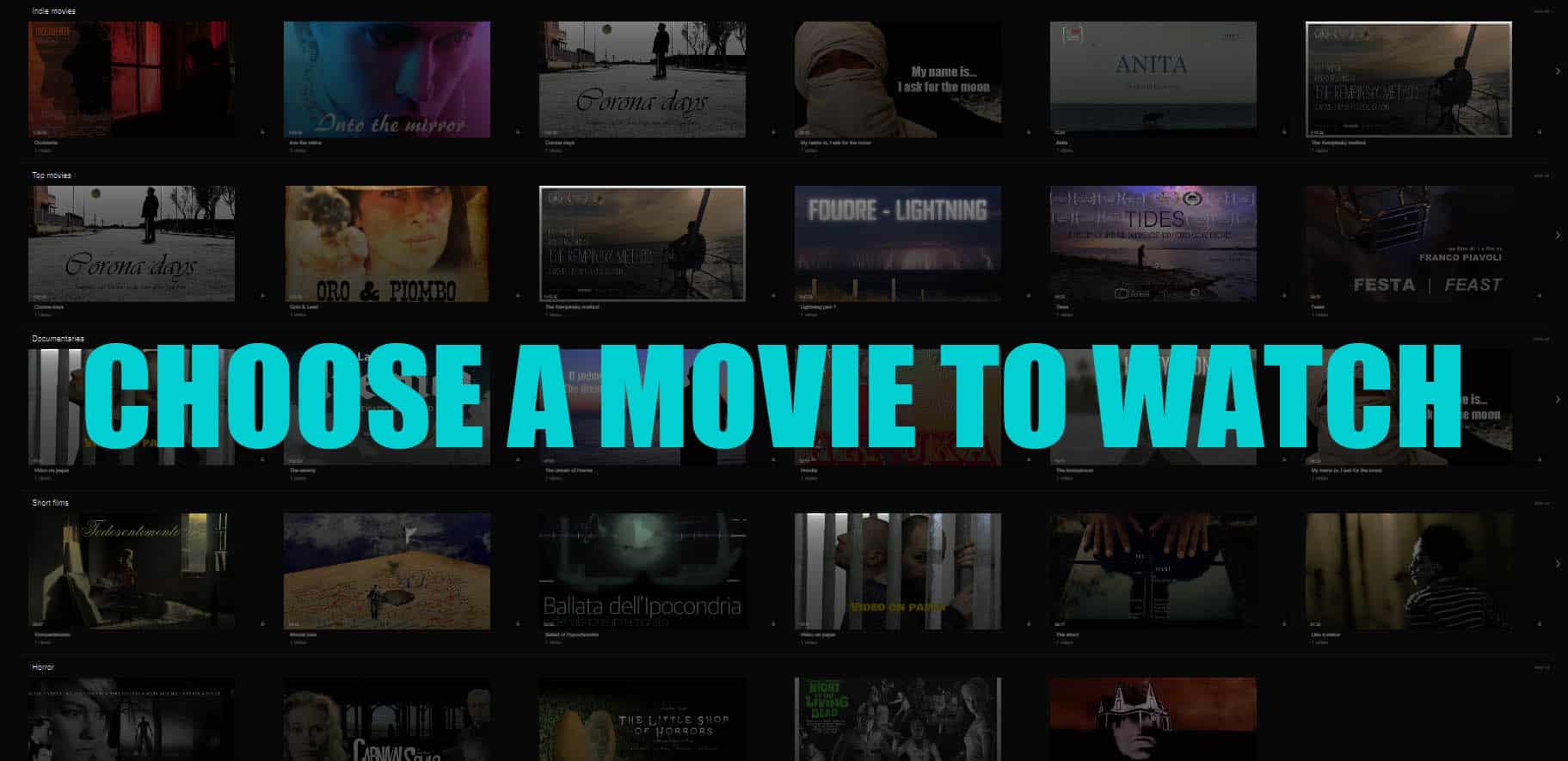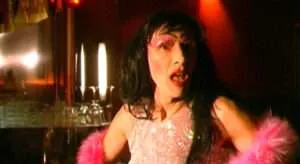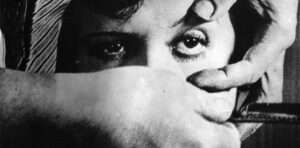Who is Franco Piavoli

Franco Piavoli is one of the best directors of all time in the independent film and documentary industry. He was born in Pozzolengo in the province of Brescia, in 1933. He attended classical high school and graduated in law in Pavia in 1956. He completed his training dedicating himself to the study of botany and ecology. Then he became passionate about painting and photography, and confronted with the young local photographer Ugo Mulas.
Franco Piavoli graduated and became a lawyer, then a teacher of law and economics in high schools. He follows his passions with tenacity: a life and a poetics matured in close contact with the territory of origin, the beautiful province of Brescia, the amphitheater of the morainic hills, a constant source of inspiration.
The Style of Franco Piavoli
Franco Piavoli’s cinema is a cinema of relationships. The principle of causality dominates the author’s whole vision. Contemplation and discovery of the laws that seem to govern the world seem to be the director’s main interests, which coincide with a profoundly ethical vision of art in the ancient tradition
In Franco Piavoli’s cinema every vital element acquires value in our eyes thanks to the correspondences it entertains from time to time with what it comes into direct contact with, in an evolutionary path that from birth leads to death , as in The Blue Planet.
With a past without history whose archetypal traces are in the depths of the human being and continue to work in it, as in Nostos. With the different phases of the existential parable as in Voices in time. According to vital trajectories that mark cyclicality as the privileged form of a poetic indebted to the lessons of Leopardi, Lucretius, Hesiod, Homer.
With thoughts that arise during the hours of an August Sunday in the countryside, a sacred silence interrupted only by considerations on the loneliness and on modernity and its failures, as in the film At the first breath of wind. Nature and man are the harmonic elements, the thirst for knowledge the real protagonist on which the emotional tones of the universe of the long film which is the entire work of Franco Piavoli are articulated.
Pervaded by a earthly transcendence and concrete, immersed in matter, which is the only true transcendence possible, Franco Piavoli’s gaze embraces small worlds, observed with the curiosity of an entomologist.
It magnifies and creates synaesthetic tensions with a very rich and fascinating audiovisual score, based on the enhancement of sound and on classic and linear visual structures, at the service of a lyrical and conscious Humanism. From the first sketches to the works of maturity, the boundary line and the reconciliation between nature and artifice.
In Franco Piavoli’s eyes, aenough small change is to win the eye of his camera. Or perhaps we could define it as a huge change: the blinking of a man’s eyelashes, the evening coming, the clouds filling the sky, the distant bark of a dog, a simple breath. A capacity for perception and gratitude for the things of the world that most of us have lost.
Franco Piavoli’s Egg
By Massimiliano Perrotta
By dint of re-evaluating Series B films, cinema has become – on a cultural level – a Series B art. While we amused ourselves with the unshocked comedies or the fist fights revered by Quentin Tarantino, rigorous masters such as Béla Tarr or Jean-Luc Godard entered the shadows.

Even once-famous authors such as Wim Wenders are struggling to get out in cinemas. Even more lateral is the independent Italian cinema, despite boasting an absolute master, Franco Piavoli, author of a few feature films but all series a, unfortunately.
His masterpieces are The blue planet, a contemplative poem on the terrible beauty of nature, and Voices in time, a fresco on the seasons of the year and life. What is the magic of these films substantiated? With an apparently naive look but really dramatic, prehensile, able to reveal and correlate.

Of 2016 is Feast, presented in Locarno and today visible in streaming on Indiecinema, the channel created by director Fabio Del Greco and entirely dedicated to independent cinema. Feast is a medium-length film made up of thoughtful faces, suspended moments, old dancing couples, small meaningful gestures to tell the Italian province with joy and melancholy. With poetry. Serie a cinema, unfortunately.

Watch Feast
Franco Piavoli has always lived in Pozzolengo, a village in the hinterland of northern Italy near Lake Garda. He was a teacher and a documentary maker for passion, when he was discovered by the independent director Silvano Agosti, who encouraged him to make feature films and produced “The blue planet”.
I remember a lunch a few years ago at Piavoli’s house, with pumpkin ravioli and mustard. His beloved wife Neria Poli, an existential and creative point of reference for him (as assistant director), had recently passed away.
For coffee we were joined by a friend of his who proposed – for the upcoming Easter holiday – to go with other friends to a distant exotic location at the time. Piavoli declined the invitation because he couldn’t miss the egg ritual.
He explained to us that it was his tradition, on Easter Monday, to wake up at dawn, walk to the neighboring village and eat a freshly laid egg on the farm. An egg is enough for Franco Piavoli to read the world.
Franco Piavoli’s Films
After the first experimental films of which no trace remains, he made short films in amateur format of the 60s: The seasons, Domenica sera, Emigranti, Evasi, were awarded in numerous reviews and let us glimpse the vision of the author’s world and a sure command of the cinematographic medium.
The Seasons (1961)

The Seasons is a 1961 Italian documentary film directed by Franco Piavoli. The film is composed of four chapters, one for each season, that document rural life in a small mountain community in the Tuscan-Emilian Apennines.
The film is shot in black and white and uses a poetic montage to create a lyrical vision of nature and human life. Piavoli avoids using dialogue or narration, instead focusing on the images and sounds of nature.
The film is considered one of the masterpieces of Italian documentary cinema. It was awarded at the Cannes Film Festival in 1962 and has received numerous other international accolades.
Plot
The film opens with a shot of a field of wheat swaying in the wind. The voiceover informs us that the film is a portrait of rural life in a small mountain community.
The first chapter, Spring, is dedicated to the birth of life. The images show the countryside waking up after winter, with the snow melting and the first flowers blooming.
The second chapter, Summer, is dedicated to the growth of life. The images show the work of farmers in the fields, the harvest of fruits, and the harvest festival.
The third chapter, Autumn, is dedicated to the maturity of life. The images show the harvest of cereals, the grape harvest, and hunting.
The fourth chapter, Winter, is dedicated to death and rebirth. The images show the countryside preparing for winter rest, with animals retreating to barns and farmers preparing for the cold season.
Style
The Seasons is a poetic documentary film that uses evocative montage to create a lyrical vision of nature and human life. Piavoli avoids using dialogue or narration, instead focusing on the images and sounds of nature.
The film is shot in black and white, which helps to create an atmosphere of dream and magic. The montage is fluid and sinuous, and the images are often accompanied by a musical soundtrack.
Interpretation
The Seasons can be interpreted as a film about the cyclical nature of life. The film follows nature through its four seasons, from birth to death and rebirth.
The film can also be interpreted as a film about the beauty of nature. Piavoli shows us nature in all its power and delicacy.
Reception
The Seasons was a critical and commercial success. The film was awarded at the Cannes Film Festival in 1962 and has received numerous other international accolades.
The film is considered one of the masterpieces of Italian documentary cinema. It is a film that has had a profound impact on the history of cinema, and that continues to be admired and studied today.
Sunday Night (1962)
Sunday Night is a 1962 Italian short documentary film directed by Franco Piavoli. The film is shot in black and white and follows the lives of a group of people in a small rural community in the Tuscan-Emilian Apennines on a Sunday afternoon.
The film is shot with an 8mm camera and uses a simple and direct montage to tell the story of the people who live in this community. Piavoli avoids using dialogue or narration, instead focusing on the images and sounds of nature.
The film is considered one of the masterpieces of Italian documentary cinema. It is a film that has had a profound impact on the history of cinema, and that continues to be admired and studied today.
Plot
The film begins with a shot of a group of people gathering in a square. They are all dressed in simple, peasant clothing, and they seem to be friends or family.
The people chat and enjoy themselves, and the film captures their joy and simplicity. Children are seen playing, adults are dancing and singing, and the elderly are resting in the sun.
The film follows the people as they move around the community. They are seen walking down the streets, entering their homes, and working in the fields.
The film ends with a shot of a sunset. The people say goodbye and separate, and the film ends with an image of peace and tranquility.
Style
Sunday Night is a poetic documentary film that uses a simple and direct montage to tell the story of the people who live in this community. Piavoli avoids using dialogue or narration, instead focusing on the images and sounds of nature.
The film is shot in black and white, which helps to create an atmosphere of dream and magic. The montage is fluid and sinuous, and the images are often accompanied by a musical soundtrack.
Interpretation
Sunday Night can be interpreted as a film about the simplicity of life. The film captures the joy and simplicity of the people who live in this community.
The film can also be interpreted as a film about the beauty of nature. Piavoli shows us nature in all its power and delicacy.
Reception
Sunday Night was a critical and commercial success. The film was awarded at the Montecatini Festival in 1962 and has received numerous other international accolades.
The film is considered one of the masterpieces of Italian documentary cinema. It is a film that has had a profound impact on the history of cinema, and that continues to be admired and studied today.
Analysis
Sunday Night is a film that explores the theme of the simplicity of life. The film captures the joy and simplicity of the people who live in this rural community.
The film is shot with an 8mm camera, which helps to create an atmosphere of intimacy and closeness. Piavoli avoids using dialogue or narration, instead focusing on the images and sounds of nature.
The film is a poetic portrait of rural life. It is a film that reminds us of the beauty and simplicity of life.
Conclusion
Sunday Night is a beautiful and moving film that captures the essence of life in a small rural community. The film is a testament to the power of cinema to tell stories and to connect with audiences on a human level.
Emigrants (1963)
Emigrants is a 1963 Italian short documentary film directed by Franco Piavoli. The film is shot in black and white and follows the stories of a group of people who emigrate from Southern Italy to the North.
The film is shot with a 16mm camera and uses a simple and direct montage to tell the stories of the people who emigrate. Piavoli avoids using dialogue or narration, instead focusing on the images and sounds.
The film is considered one of the masterpieces of Italian documentary cinema. It is a film that has had a profound impact on the history of cinema, and that continues to be admired and studied today.
Plot
The film begins with a shot of a group of people gathering at a train station. They are all dressed in simple, peasant clothing, and they seem to be friends or family.
The people say goodbye to their loved ones and prepare to leave. The film follows the people as they board the trains and depart from their home country.
The film ends with a shot of a group of people arriving in a city in Northern Italy. They are all dressed differently, and they seem to be disoriented and lost.
Style
Emigrants is a poetic documentary film that uses a simple and direct montage to tell the stories of the people who emigrate. Piavoli avoids using dialogue or narration, instead focusing on the images and sounds.
The film is shot in black and white, which helps to create an atmosphere of dream and magic. The montage is fluid and sinuous, and the images are often accompanied by a musical soundtrack.
Interpretation
Emigrants can be interpreted as a film about migration. The film captures the hope and fear of the people who emigrate.
The film can also be interpreted as a film about the loss of identity. The film shows how the people who emigrate are forced to leave their home country and build a new life in a new country.
Reception
Emigrants was a critical and commercial success. The film was awarded at the Venice Film Festival in 1963 and has received numerous other international accolades.
The film is considered one of the masterpieces of Italian documentary cinema. It is a film that has had a profound impact on the history of cinema, and that continues to be admired and studied today.
Analysis
Emigrants is a film that explores the theme of migration. The film captures the hope and fear of the people who emigrate.
The film is shot with a 16mm camera, which helps to create an atmosphere of intimacy and closeness. Piavoli avoids using dialogue or narration, instead focusing on the images and sounds.
The film is a poetic portrait of migration. It is a film that reminds us of the strength and fragility of the human being.
Conclusion
Emigrants is a beautiful and moving film that captures the essence of migration. The film is a testament to the power of cinema to tell stories and to connect with audiences on a human level.
Evasi (1964)
Evasi is a 1964 Italian short documentary film directed by Franco Piavoli. The film is shot in black and white and follows the story of a group of prisoners who are released from San Vittore prison in Milan.
The film is shot with a 16mm camera and uses a simple and direct montage to tell the story of the prisoners. Piavoli avoids using dialogue or narration, instead focusing on the images and sounds.
The film is considered one of the masterpieces of Italian documentary cinema. It is a film that has had a profound impact on the history of cinema, and that continues to be admired and studied today.
Plot:
The film opens with a shot of a group of prisoners preparing to leave prison. They are all dressed in simple peasant clothing.
The prisoners say goodbye to their loved ones and prepare to start a new life. The film follows the prisoners as they leave prison and reintegrate into society.
The film ends with a shot of a group of prisoners walking down the street. They are all dressed in different clothes.
Style:
Evasi is a poetic documentary film that uses a simple and direct montage to tell the story of the prisoners. Piavoli avoids using dialogue or narration, instead focusing on the images and sounds.
The film is shot in black and white, which helps to create an atmosphere of dream and magic. The montage is fluid and sinuous, and the images are often accompanied by a musical soundtrack.
Interpretation:
Evasi can be interpreted as a film about freedom. The film captures the hope and fear of the prisoners who are released from prison.
The film can also be interpreted as a film about redemption. The film shows how prisoners have the opportunity to start a new life.
Reception:
Evasi was a critical and commercial success. The film was awarded at the Venice Film Festival in 1964 and has received numerous other international accolades.
The film is considered one of the masterpieces of Italian documentary cinema. It is a film that has had a profound impact on the history of cinema, and that continues to be admired and studied today.
Analysis:
Evasi is a film that explores the theme of freedom. The film captures the hope and fear of the prisoners who are released from prison.
The film is shot with a 16mm camera, which helps to create an atmosphere of intimacy and closeness. Piavoli avoids using dialogue or narration, instead focusing on the images and sounds.
The film is a poetic portrait of freedom. It is a film that reminds us of the strength and fragility of the human being.
Conclusion:
Evasi is a beautiful and moving film that captures the essence of freedom. The film is a testament to the power of cinema to tell stories and to connect with audiences on a human level.
The Blue Planet
At the end of the 70s Silvano Agosti decides to personally produce his first feature film for Franco Piavoli, The Blue Planet, successfully presented in competition at the Venice Film Festival.
Il Pianeta azzurro is a 1982 Italian documentary film directed by Franco Piavoli. The film is shot in black and white and follows the cycle of the seasons in a rural landscape, from the awakening of life after the winter frosts to the flowering of spring, the summer heat in the work in the fields and the twilight of autumn.
The film is shot with a 16mm camera and uses a simple and direct montage to tell the story of the landscape. Piavoli avoids using dialogue or narration, instead focusing on images and sounds.
The film is considered one of the masterpieces of Italian documentary cinema. It is a film that has had a profound impact on the history of cinema, and that continues to be admired and studied today.
Plot
The film begins with a shot of a field of wheat that awakens after winter. The plants are dry and dead, but they begin to germinate and grow.
The film follows the cycle of the seasons, showing the life that develops in the landscape. Plants bloom, animals reproduce, and humans work the land.
The film ends with a shot of a forest that turns to autumn colors. The leaves fall from the trees and the landscape prepares for winter dormancy.
Style
Il Pianeta azzurro is a poetic documentary film that uses a simple and direct montage to tell the story of the landscape. Piavoli avoids using dialogue or narration, instead focusing on images and sounds.
The film is shot in black and white, which helps to create an atmosphere of dream and magic. The montage is fluid and sinuous, and the images are often accompanied by a musical soundtrack.
Interpretation
Il Pianeta azzurro can be interpreted as a film about nature. The film captures the beauty and fragility of life on Earth.
The film can also be interpreted as a film about the cyclical nature of life. The film shows how nature is constantly renewing itself, despite the challenges of nature.
Reception
Il Pianeta azzurro was a critical and commercial success. The film was awarded at the Venice Film Festival in 1982 and has received numerous other international accolades.
The film is considered one of the masterpieces of Italian documentary cinema. It is a film that is both beautiful and thought-provoking, and it is a film that will continue to be relevant for years to come.
Analysis
Il Pianeta azzurro is a film that explores the theme of nature. The film captures the beauty and fragility of life on Earth.
The film is shot with a 16mm camera, which helps to create an atmosphere of intimacy and closeness. Piavoli avoids using dialogue or narration, instead focusing on images and sounds.
The film is a poetic portrait of nature. It is a film that reminds us of the beauty and wonder of the natural world.
Helped by his wife Neria, Piavoli returns to work after a long break according to the secluded dimension he prefers. For Franco piavoli traditional narration does not exist, his is a poetic and lyrical cinema, a score that enhances the natural processes of creation by adopting an overturning of the traditional space-time hierarchies, in which the attention to the rhythms of nature counts more than any usual representative convention.
The Mincio Park (1987)

The Mincio Park is a 1987 Italian documentary film directed by Franco Piavoli. The film follows the course of the Mincio river, from Lake Garda to its confluence with the Po.
The film is shot in 16mm and uses a simple and direct editing style, allowing the viewer to focus on the images and sounds of the landscape. Piavoli avoids using dialogue or narration, letting nature tell its own story.
Plot
The film begins with a shot of Lake Garda, where the Mincio river originates. The river flows through a variety of landscapes, including hills, plains, and forests.
The film follows the Mincio river to its confluence with the Po. Along the way, the film shows the life that develops around the river, including animals, plants, and people.
Style
The film is shot in 16mm, which helps to create an atmosphere of intimacy and closeness. Piavoli avoids using dialogue or narration, letting nature tell its own story.
The editing is simple and direct, allowing the viewer to focus on the images and sounds of the landscape. Piavoli often uses time-lapse photography to show the changes that occur over the seasons.
Interpretation
The Mincio Park can be interpreted as a film about nature. The film captures the beauty and fragility of life on Earth.
The film can also be interpreted as a film about the cyclical nature of life. The film shows how nature constantly renews itself, despite the challenges of nature.
Reception
The Mincio Park was a critical and commercial success. The film was awarded at the Venice Film Festival in 1987 and has received numerous other international accolades.
The film is considered one of the masterpieces of Italian documentary cinema. It is a film that is both beautiful and thought-provoking, and it is a film that will continue to be relevant for years to come.
Analysis
The Mincio Park is a film that explores the theme of nature. The film captures the beauty and fragility of life on Earth.
The film is shot with a 16mm camera, which helps to create an atmosphere of intimacy and closeness. Piavoli avoids using dialogue or narration, letting nature tell its own story.
The film is a poetic portrait of nature. It is a film that reminds us of the beauty and wonder of the natural world.
Nostos – The Return (1989)
Nostos – The Return is a 1989 Italian documentary film directed by Franco Piavoli. The film follows the journey of a ruthless and cruel hero who returns home after a war.
Plot
The film begins with a shot of a hero waking up on a beach. The hero is wounded and alone, and he doesn’t remember how he got there.
The hero begins his journey home, but his path is obstructed by difficulties of both a physical and psychological nature. He must face the memory of his crimes, the desire for oblivion, and a meeting with love.
Style
Nostos – The Return is a poetic and surreal film. Piavoli avoids using dialogue or narration, letting the images and sounds tell the story.
The film is shot in 16mm, which helps to create an atmosphere of dream and magic. The editing is fluid and sinuous, and the images are often accompanied by an evocative soundtrack.
Interpretation
Nostos – The Return can be interpreted as a personal reinterpretation of the myth of Ulysses. The hero is a complex and multifaceted character, representing the inner struggle between good and evil.
The film can also be interpreted as an allegory of the soul’s journey. The hero must face his fears and demons to find redemption.
Reception
Nostos – The Return was a critical and commercial success. The film was presented at the Venice Film Festival in 1989 and has received numerous international awards.
The film is considered a masterpiece of Italian cinema. It is a film that is both beautiful and thought-provoking, and that continues to be admired and studied today.
Analysis
Nostos – The Return is a film that explores the theme of the inner journey. The film follows the path of a hero who must face his own fears and demons to find redemption.
The film is a poetic portrait of the human soul. It is a film that reminds us that we all must face our inner journey to find our true nature.
Voices Through Time (1996)
Voices Through Time is a 1996 Italian semi-documentary film directed by Franco Piavoli. The film follows the life of a small village, Castellaro Lagusello, in Lombardy, Italy, over the course of a year.
Plot
The film begins with a panoramic shot of the village, which is surrounded by a lake. The film follows the seasons and the activities of the villagers, including olive harvesting, grape harvesting, and traditional festivals.
Style
Voices Through Time is a poetic and melancholic film. Piavoli avoids using dialogue or narration, letting the images and sounds tell the story.
The film is shot in 16mm, which helps to create an atmosphere of intimacy and closeness. Piavoli often uses time-lapse photography to show the changes that occur over time.
Interpretation
Voices Through Time can be interpreted as a film about time and memory. The film captures the beauty and fragility of life, and reminds us that time is a precious commodity.
The film can also be interpreted as a film about identity and community. The film shows how people are connected to the place they live and the traditions that characterize it.
Reception
Voices Through Time was a critical and commercial success. The film was presented at the Venice Film Festival in 1996 and has received numerous international awards.
The film is considered a masterpiece of Italian cinema. It is a film that is both beautiful and thought-provoking, and it is a film that continues to be admired and studied today.
Analysis
Voices Through Time is a film that explores the theme of time and memory. The film captures the beauty and fragility of life, and reminds us that time is a precious commodity.
The film is a poetic portrait of a small Italian village. The film reminds us that beauty can be found in the simple and everyday things.
Paesaggi e figure (2001)
Paesaggi e figure (2001) is an Italian short film directed by Franco Piavoli. The film is composed of a series of images of landscapes and figures, without dialogue or narration.
Style
Paesaggi e figure is a poetic and contemplative film. Piavoli uses images and sounds to create an atmosphere of peace and tranquility.
The film is shot in black and white, which helps to create a sense of nostalgia and reflection.
Interpretation
Paesaggi e figure can be interpreted as a film about the beauty of nature. The film captures the beauty of Italian landscapes, both natural and urban.
The film can also be interpreted as a film about the loneliness of man. The film shows how man is often alone, even in the midst of nature.
Reception
Paesaggi e figure was presented at the Venice Film Festival in 2001. The film was praised by critics for its poetic style and its ability to capture the beauty of Italian nature.
Analysis
Paesaggi e figure is a film that explores the theme of the beauty of nature. The film captures the beauty of Italian landscapes, both natural and urban.
The film is a poetic portrait of man and nature. The film shows how man is often alone, even in the midst of nature.
Al primo soffio di vento (2002)
Al primo soffio di vento is a 2002 Italian drama film directed by Franco Piavoli. The film follows the story of a family of landowners who spend a summer in their country home in Lombardy.
Plot
The film begins with the arrival of the family at their country home. The family consists of Antonio, the father, his wife, their two daughters, and their ailing mother.
The film follows the family as they spend their summer together. Antonio is a distant and cold father, and his wife is unhappy in her marriage. The daughters are growing up and beginning to explore their own identities. The mother is frail and dying.
Over the course of the summer, the family begins to come to terms with their own problems. Antonio begins to bond with his daughters, and his wife begins to find her own voice. The mother dies peacefully, and the daughters are left to face the future on their own.
Style
Al primo soffio di vento is a poetic and lyrical film. Piavoli uses long takes and slow pacing to create an atmosphere of contemplation and reflection.
The film is shot in black and white, which helps to create a sense of nostalgia and longing. The music is also an important element of the film, and it helps to create a sense of mood and atmosphere.
Interpretation
Al primo soffio di vento can be interpreted as a film about family, loss, and the passage of time. The film explores the complex relationships between family members, and it shows how loss can be a catalyst for change.
The film can also be interpreted as a film about the beauty of nature. The film is set in a bucolic setting, and the natural world is often used to represent the cycle of life and death.
Reception
Al primo soffio di vento was a critical and commercial success. The film was presented at the Venice Film Festival in 2002 and was nominated for several awards.
The film is considered a masterpiece of Italian cinema. It is a film that is both beautiful and thought-provoking, and it is a film that continues to be admired and studied today.
Analysis
Al primo soffio di vento is a film that explores the themes of family, loss, and the passage of time. The film explores the complex relationships between family members and shows how loss can be a catalyst for change.
The film can also be interpreted as a film about the beauty of nature. The film is set in a bucolic setting, and the natural world is often used to represent the cycle of life and death.
Umberto Bellintani (2004)
In 2004 he created an inspired medium-length film dedicated to his friend the Mantuan poet, Umberto Bellintani, portrayed starting from his intense epistolary relationship with Alessandro Parronchi.
Feast (2016)
Feast (2016) is an Italian short film directed by Franco Piavoli. The film follows the celebration of the Feast of Saint Peter in a small town in Lombardy.
Plot
The film begins with the preparation for the festival. The priest blesses the town and invites everyone to participate in the festivities.
On the day of the festival, the town is in celebration. People gather in the square to eat, drink, and dance. Children play on the rides and street performers entertain the crowd.
The festival ends with fireworks.
Style
Feast is a poetic and melancholic film. Piavoli uses images and sounds to create an atmosphere of joy and nostalgia.
The film is shot in digital, but Piavoli uses traditional techniques like editing and music to create a suggestive atmosphere.
Interpretation
Feast can be interpreted as a film about the celebration of life. The film shows how people come together to celebrate the things that are important to them.
The film can also be interpreted as a film about nostalgia. The film captures the atmosphere of a bygone era, when festivals were a more important community event.
Reception
Feast was presented at the Locarno Film Festival in 2016. The film won the award for Best Italian Short Film.
The film was praised by critics for its poetic style and its ability to capture the essence of life in a small Italian town.
Analysis
Feast is a film that explores the theme of the celebration of life. The film shows how people come together to celebrate the things that are important to them.
The film is a poetic portrait of a small Italian town. The film captures the atmosphere of a bygone era, when festivals were a more important community event.






